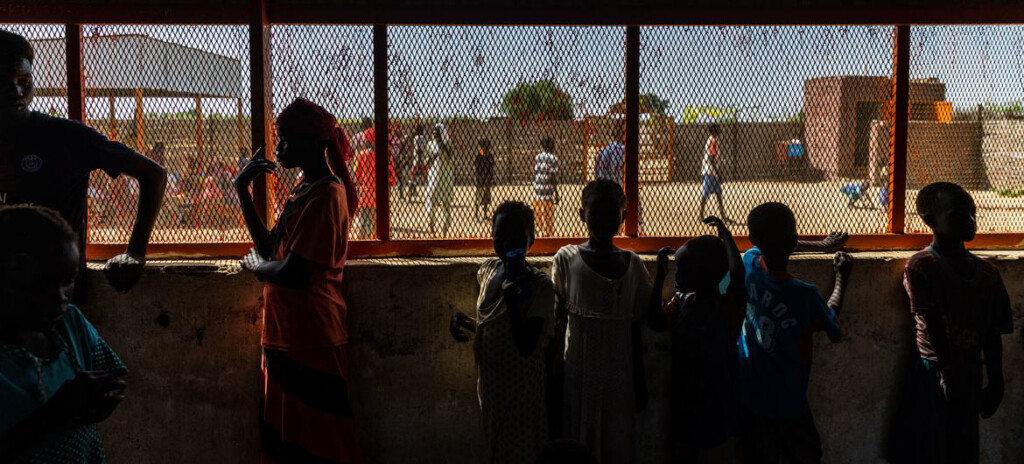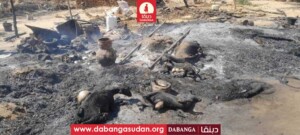Ten killed and over 6,000 displaced in South Darfur

A child-friendly space at a camp in South Darfur (File photo: Adriana Zehbrauskas / UNICEF)
The IOM Displacement Tracking Matrix reported that ten people were killed, others were injured, and 6,000 families were displaced because of tribal clashes in the Nadif and Marfaeena areas in Burum in South Darfur last Thursday. More deaths and injuries occurred because of the clashes extending to Burum town on Saturday. Meanwhile, Eritrea and Ethiopia have temporarily suspended Sudanese entry into their countries due to reported overcrowding and violence.
The Displacement Tracking Matrix of the International Organization for Migration (IOM) explained in a report that the displaced people from the Nadif and Marfaina areas were headed to the town of Burum and other villages next to the El Santa area. Recent events have prompted the United Nations Under-Secretary-General and Special Adviser on the Prevention of Genocide, Alice Wairimu Nderitu, to express her “alarm” at the renewed escalation of violence in Darfur.
South Darfur activist Salem El Nour told Radio Dabanga that the formation and organisation of military vehicles and equipment used during the clashes suggest that the victims were part of an orchestrated attack. Elnour expressed his grief for the dozens of casualties and property loss caused by the ongoing conflict, calling on various tribes to review their positions on what is happening.
Activists revealed an agreement to stop hostilities between the Salamat and Beni Halba, which was signed in Kas, South Darfur, on November 11 is being implemented.
El Nour explained that “the agreement included a ceasefire, the rejection of hate speech, and allowing farmers to harvest their produce.” He criticised its failure to include the opening of roads.
People in Kubum in South Darfur have reported experiencing levels of calm in the region, contrasting with the “tragic and difficult living conditions” they have been living through. Surveys conducted by Radio Dabanga at the Kubum market on Monday show that food prices were stable and affordable. A committee has been formed to monitor the markets and control prices, leading to price stabilising and abundance of various products.
Ethiopian corridor
On Sunday, the El Gedaref authorities temporarily closed the El Galabat land crossing to Ethiopia to citizens. The movement of goods and trade between the two countries is still allowed.
Residents of El Gedaref confirmed to Radio Dabanga that several people who travelled to Ethiopia have returned to Sudan due to widespread looting.
As previously reported by Radio Dabanga, the Ethiopian regions bordering Sudan are witnessing ongoing violence, looting, and unrest that recently affected travellers from El Gedaref State.
Eritrean border
Similarly, Eritrean authorities have suspended Sudanese entry through the El Laffa crossing due to the overcrowding of hotels and facilities in various cities.
One witness reported that “all hotels and mosques are crowded with Sudanese waiting for their turn to obtain a visit and residence visa from the Saudi embassy.”
They explained that the Saudi embassy in the Eritrean capital, Asmara, deals with two agencies, where the waiting period for submitting passports and obtaining a visa is more than a month and a half. Many have urged for new agency branches to open in the city of Kassala to schedule appointments to receive passports at the Saudi embassy in Asmara.
Head of the Sovereignty Council and commander-in-chief of the Sudanese army Gen Abdelfattah El Burhan visited the Eritrean capital in September to discuss bilateral ties with Eritrean President Isaias Afwerki.
El Burhan met with Ethiopian Prime Minister Abiy Ahmed Ali in his country’s capital of Addis Ababa last week to discuss the Sudan crisis and commit to regional cooperation.











 and then
and then